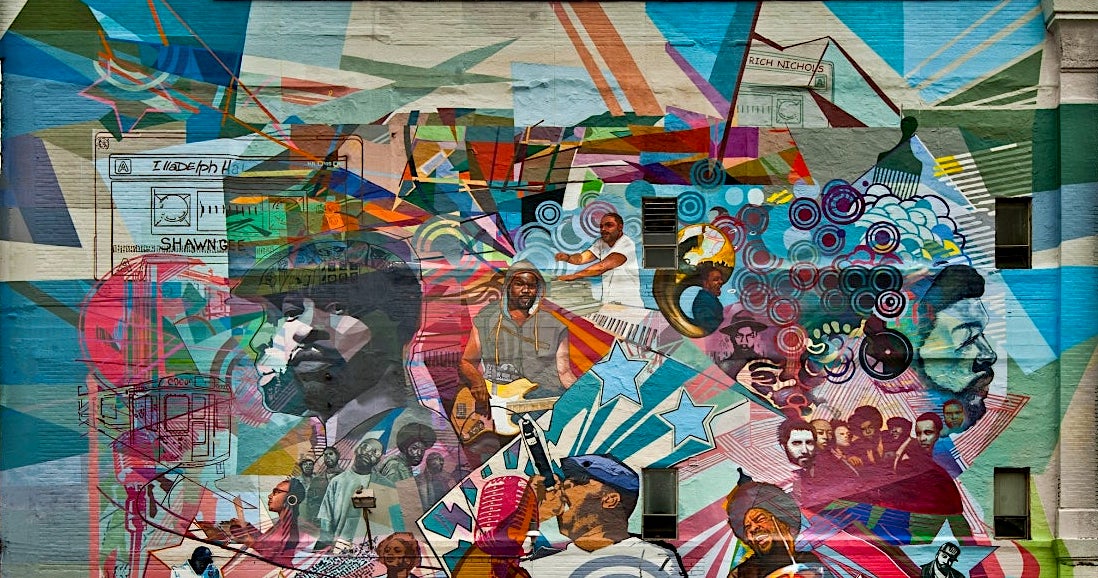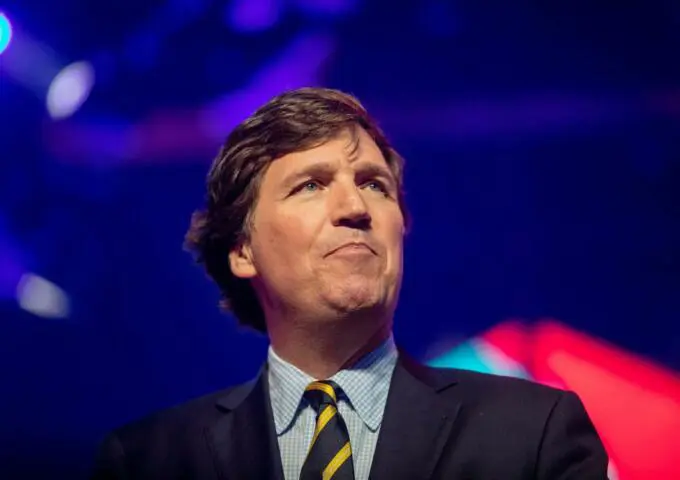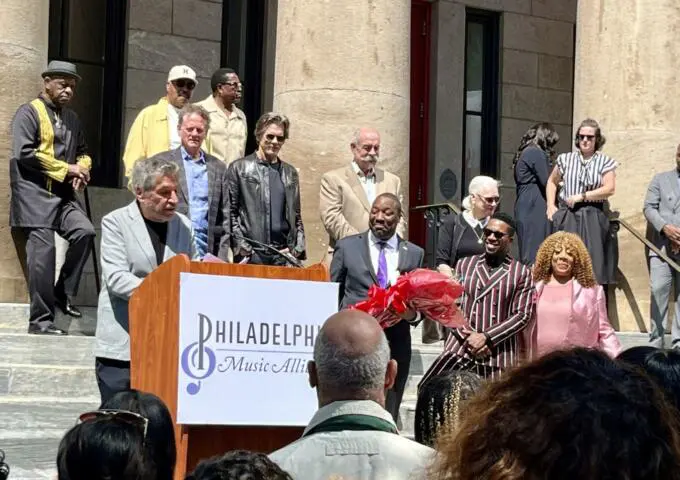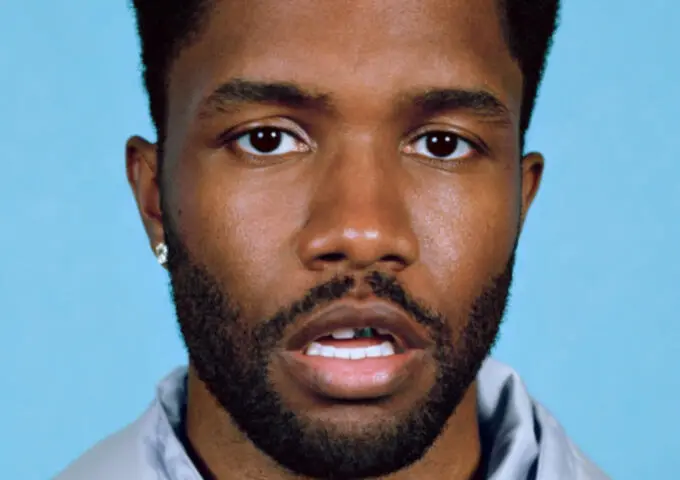When Philadelphia’s Malik Abdul-Basit – Malik B., The Roots’ famed second rapper next to Tarik “Black Thought” Trotter – passed away in July of this year, no one within the band, or its extended inner circle, could talk publicly, beyond social media, about their long lost brother.
All in The Roots’ family were devastated by the loss of the man Trotter nicknamed “Slacks,” who became a Square Roots member after meeting Black Thought at school in 1991 (Trotter and Ahmir “Questlove” Thompson had co-founded the live hip hop unit in 1987) recorded “Organix” (1993), “Do You Want More?!!!??!” (1995), “Illadelph Halflife” (1996) and “Things Fall Apart” (1999) before leaving the band.
Always the “street” to Trotter’s “smarts,” Malik B. imbued all that he wrote and rapped with richly incendiary, poetic hints of the secular and the sacred, the latter tied to his deep abiding love and devotion to Islam, eventually doing featured, like-minded drop-ins on the Roots’ albums “Game Theory” (2006) and “Rising Down” (2008), as well as solo music such as the “Psychological” EP in 2006, and two studio albums: “Street Assault” (2005) and “Unpredictable” (2015), the latter in collaboration with Mr. Green.
Never one for the touring life, something The Roots did with fervor and without end in the 1990s, Malik was absent more often than not. He even poked fun at his own reputation for going missing on 1999’s “Adrenaline,” with, “Yeah, Malik B. from the Roots, he ain’t gone/I took the wrong exit, the sign said Langhorne.”
On “100% Dundee” Black Thought shared: “People want to know where Malik? He right next to me: The weaponry, the secret recipe.”
Malik B.’s demons, the drug use that haunted him throughout his existence, was also noted within The Roots’ music; not by Malik himself, but, by Trotter on “Water (The First Movement)” from The Roots’ 2002 album “Phrenology.” Dedicated to the often-missing Malik, Trotter recalled his brother’s struggles, drugs and otherwise: “It was a couple of things, lil’ syrup, lil’ pills / Instead of riding out on the road, you’d rather chill. I know the way a pleasure feel, I’m not judging/But still I’m on a mission, yo, I’m not buggin’“
Black Thought Instagrammed this note to his brother, immediately following Malik B.’s passing: “Your steel sharpened my steel as I watched you create cadences from the ether and set them free into the universe to become poetic law, making the English language your bitch…. We made a lane and carved a lane together where there was none. We resurrected a city from the ashes, put it on our backs and called it Illadelph. In friendly competition with you from day one, I always felt as if I possessed a mere fraction of your true gift and potential.”
There were the words on social media from The Roots’ co-founders.
Then quiet.
That is, until I spoke to Black Thought in August on the occasion of getting signed as a solo artist to Republic, and releasing his label debut, a single entitled, “Good Morning,” and an album, “Streams of Thought, Vol. 3: Cane & Able,” later this month – a record originally due out mere days after Malik B.’s passing, but held in a period of mourning and as a show of respect to Thought’s fallen brother.
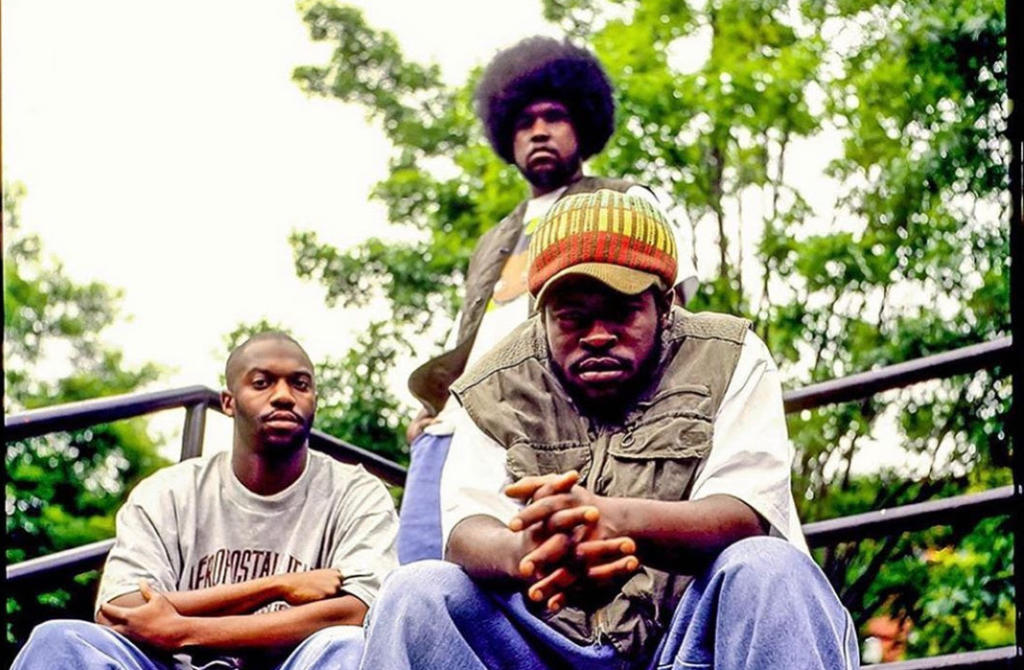
Floodgates open, I began digging beyond Black Thought, into the other Philadelphia lives affected by Malik B. in the past and the recent present: those who worked with him and those who befriended him.
Other than stating here, in my humble opinion, that The Roots’ gently eccentric second rapper was heroic, humorous and ferocious in his merging of the streetwise and the spiritual, and that his presence (he was always kinetic in person, whether onstage or off), his flow and his lyrics will be missed, I spoke to people in Malik B.’s life, and am printing our chats without my interruption. As a brief oral history of their interaction with Malik B., I wanted to know what they recalled of their meetings, what they loved about him, and, even what lyrics of his touched them the most.
Karl “Dice Raw” Jenkins – New Raw Media, Board-Chair at Freedom Theater, playwright, rapper, contributor-collaborator to The Roots, 1995–2001
When I first met Malik, I noticed he was dressed like people from neighborhood I respected. Dressed like a gangster. Malik was continuously trying to put me in situations I wasn’t gangster enough for.
He was really cool, and knew a lot of people from my neighborhood (Logan) and the fact I knew these people and had relationships with them that was gangster enough for him. Hanging out with Malik was like being an actor in a film he’s directing.
I dug Malik lyrics. He has some of the most amazing bars ever, sadly, most of it you won’t hear unless you seek them out. Malik is a go-back-after-the-fact guy. When you listen to his older stuff there’s a lot of meat on the bone.
Initially I looked up to him, and then I started feeling bad for him. He was in and outta jail so much that when he would come home back to the studio, he was different, and so was I.
He was becoming more and more gangster, and I was becoming less. I had love for him, but, it was beginning to be like a drug-addicted family member you just keep enabling.
Spiritually: I think that was the most complete and complicated thing about him. Me? I’m no authority on religion, being an atheist most of my life. Most of our interactions on that level, I look at now, though, as missed opportunities, especially now having my own relationship with God. I think inside Malik’s mind, as far as what he thought – being outspoken etc. – there’s also a lot of meat on the bone from how he lived, compared to how he could have lived. He is an enigma. In that respect, fame, money, props, had no effect on him.
Let’s dive deeper and say, “Okay then, what drove him creatively? Why was his inspiration so different from mine or any other rapper.” My inspiration comes from many places, but, to some degree, I can’t wait to be inspired because I have deadlines, and writing my last statement helps me understand him a bit more.
Malik never cared about a deadline. I did, and do consistently worry about deadlines. For him, just looking at the word “deadline” meant something different to him all together. Maybe it meant, “dead” “lines” to him, like rap lines, because that’s how his mind works. There’s no disconnect, it’s all connected for him. As far as the relationship with him and The Roots, it’s always been gang-gang-gang no matter what you hear on the internet.
Yeah, I knew and know all too well about Malik’s drug use. See, he started sipping syrup, which was a drug for gangsters, really. It was super expensive, and very addictive. I grew up around syrup heads, I know it’s cool to do now, but, it’s always had a certain allure because of the types of people who drank syrup. It was open drug use with him. I’d come in the studio and he would have the bottles turned upside down to be sure he’d get every drop. So, what did the drugs do? It’s big in the music industry, no secret, it did put a strain on the relationship with the band simply because no one there drank syrup or took pills. There’s no disassociation with The Roots. He was on every album. They always made sure of that, unless he was incarcerated, which we also know isn’t his fault, but rather a byproduct of a failed judicial system.
My relationship with Malik changed over the years. The dynamic from me being a kid who just wanted to tag along to an adult that didn’t have time to go on a mission and no interest in whatever the mission would entail. Up until his death I would talk to him maybe three times a week, which wasn’t normal at all! Prior to us talking regularly, I saw a guy dressed in not-so-fashion-forward clothing getting uncomfortably close to my new car, so, I did what any elitist asshole would do: I tried to lock the door! As soon I hit the lock button he jumped in. I didn’t know it was him. I was like “Yo, get the fuck outta my car!!!! BUT. It was Malik!!! Everyone who knows me knows I have poor eyesight. So, he wasn’t offended. He so crazy!!! He was in a rush and had pressing business in the Hunting Park section of Philly, and needed me to take him to H.P with most haste. I didn’t wanna do it but I said “fuck it.” Last time I saw him alive.
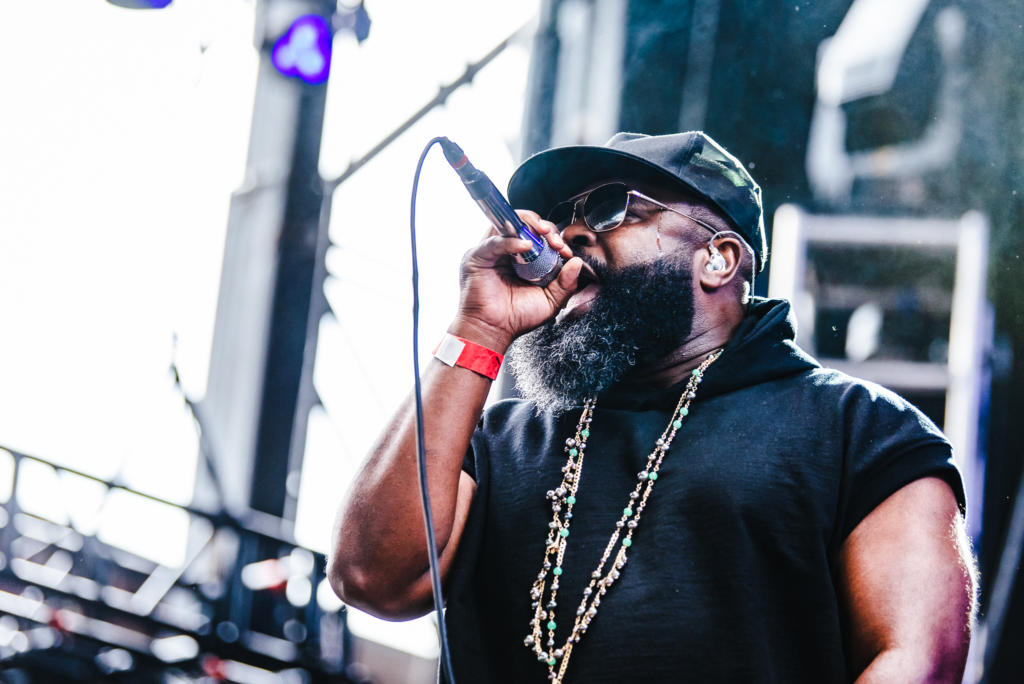
A relationship outside of The Roots for me? There is nothing outside. We are family. It’s all connected.
My favorite lines from Malik:
“Dreams of M16s with infrared beams/Blowing up President’s crib with can kerosene.
Hijack his limousine with a strategic routine/Then blast my enemies and head for the Caribbean.
I’m from illadell/The place where the killers dwell
My technique is to ambush you/Gorilla style
My instinct is of a killer whale.”
Joshua “Rubberband” Abrams – bandleader, contributor to records from Town & Country, Joan of Arc, etc., bassist for The Roots 1992–1994
I met Malik in 1992 while we were both members of The Roots. He joined towards the end of my short time with the group. To me he always emanated a relaxed and welcoming energy. Good vibes. We both appreciated the music and being a part of the group and that appreciation manifested itself as respect for each other as comrades in a greater endeavor. Malik B. embodied lyricism and flow at an extremely high level.
During my time with the band, I heard Tarik rap opposite many MCs during our sessions on the street, but he and Malik were tight, and their friendship was palpable, especially in their musical chemistry. They seemed to challenge and elevate each other’s skills and poetry. As a team they could pull off microphone acrobatics that I have not witnessed before or since, namely finishing each other’s spontaneous verses without premeditation. It was a freestyle flowing between two MCs, sometimes jumping off a word suggested by a third person, and, at times, over an unusual rhythm or meter, such as 11/4. This was truly mind-melting stuff. Living in Chicago, I hadn’t seen Malik in over two decades, but I’d get word of him once in a while when speaking with Ahmir.
It was deeply sad news to hear of his passing. It brought back memories of a time that had a huge influence on my path. Seeing old pictures of Malik from that time also brought to mind another talented friend from that moment who has since passed, the masterful photographer Mpozi Tolbert. May each rest in the Eternal.
David Ivory – co-founder of Councilman David Oh’s Philadelphia Music Industry Task Force, owner of Dylvana Studios, producer-songwriter to Patti Labelle, The O’Jays, Nelly, Common, Erykah Badu and the first four albums from The Roots
It was early on at my new studio at Sigma Sound when I met The Roots. I remember that when I met Malik, along with Tarik and Ahmir, that he was quiet at first, but quite cool. We introduced each other, had a hug, and from that point on, we were buds. He was definitely a driving force in the make-up of the band, for sure.
As the many years went on working with Malik, his demons were obviously starting to take over. His creativity, however, did not diminish. He had a brilliant way for framing his story and his delivery that really complemented Tarik’s, so everyone dealt with his behavior.
Day-to-day, Malik was always a good guy, for sure. We definitely had many laughs together. He understood the importance of his lyrics and worked on them constantly. But, as the day went on – many times with 20-hour sessions – he would get drained, and his attitude/behavior would certainly change.
It was interesting from a recording perspective for both Tarik and Malik in that when I set up a mic for them to rap, their performance wasn’t the same. It wasn’t until I gave them a hand-held mic (taboo for a recording studio) that they both instantly transformed and they subsequently gave much better performances. It was more natural for them since that was what they were used to doing: holding a mic and rapping. Yeah, sonically it wasn’t as good, but, that never beats performance.
The last time I saw him was at a Roots Picnic years ago. Dice, Malik and I were hanging out and had a good time reminiscing. He was, though, a bit annoyed that he wasn’t backstage with the guys.
My lasting impression of Malik will be that he was a brilliant, but troubled artist. Like so many before him, he had a hard time dealing with the demons that haunted him. That said, I was blessed to work with him and experience The Roots from the beginning. Looking back it was truly a life-changing experience.
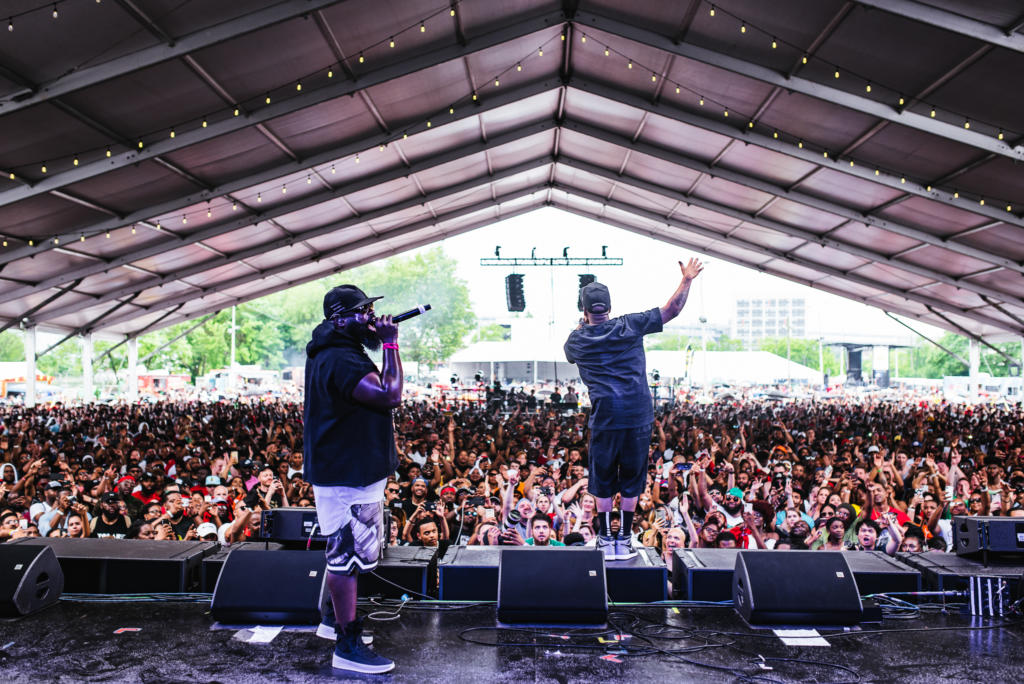
Bobbi I. Booker – WRTI 90.1-FM host, radio producer and longtime friend to The Roots’ late manager Rich Nichols and Malik B.
I met Malik as a member of The Roots, but was real friends, first, with Richard Nichols. I knew Rich from South Philly, but became buddies at Temple U – worked at WRTI together. He had these esoteric tapes and played God-knows-what jazz in the middle of the night. He, Hub (Leonard Hubbard, The Roots’ bassist 1994–2007) had our own circle while hovering around The Roots’ crew. Rich managed a few groups before The Roots and he and I had day-money-jobs as court reporters, doing legal video and audio, recording depositions. That was important to what he was doing as we had professional recording equipment at his disposal, along with something equally important: transportation, a station wagon. I was appointed the other driver, and met Malik as soon as Rich associated himself with the band.
Malik? I knew him as Tarik’s boy. That was that. Malik might have an issue – and I’m not talking substances – with how he was evolving and the religious dynamics of all that, but that never mattered to Tarik. Tarik had to make that point with many people outside the circle. I remember The Roots recording at Sigma in David Ivory’s rooms, and Malik could be a handful. Emotionally, he could be all over the place. Once he got on the mic, though, it was a whole different thing. That came down to the quirkiness of a person trying to negotiate this whole entertainment business thing. That was difficult for him. Plus, coming out of South Philly, we all knew all-about the substance that was Malik’s curse. Syrup was his albatross. That was problematic, especially as, back then, you couldn’t find it just anywhere. That too became an issue. Seeing that as a crutch he couldn’t let go of – that’s a shame.
After he left The Roots, I would see Malik every 18 months or saw, last time being 2019. We were downtown at Nordstrom’s, and he was bright, effusive, into the new music he was doing. “Yo, Rob, I got some new stuff you have to hear.” He seemed great, clear – and I’ve seen him in bad headspaces over the years. He looked as if he had taken his grown-up pill and was at peace with who he had become. It was good to be with him on his flow tip. He was always looking inward to the evolution of the self – his self – but, he also always had his eye on the streets. He was never NOT a part of the street dynamics who made him who he was. That was the edict by which he lived.
Tarik Trotter – Black Thought
I did keep in touch with him beyond The Roots – absolutely. After he stopped working with The Roots as much, we kept in touch in that, you know, we’re business partners. And look, Philadelphia is a very small place. We often moved in the same circles. We continued to look out for Malik until the end, trying to make sure that he was safe, and keeping his head above the nonsense, that static that comes along with moving through the Philly streets.
Malik to me was a brother within a band of brothers. At the point at which he and I met and started to collaborate, he helped me to keep my head in the game. There was a moment early on when I went away to school, a time when I was farthest from Ahmir (Thompson), who, up until that point, was the only other person that I had known as a partner. Malik helped keep the Roots together, because once he became part of the equation, he added a completely different dynamic, a new dimension to us as a unit.
When he and I left school to reestablish the connection with Ahmir and Philly, I felt as if we were ready for The world. Malik represented a missing piece of the puzzle. What I’ll remember about him most is how he made people feel. There will be valleys and peaks in a person’s life, but he remained the same person on a “heart” level. Maybe it had something to do with his upbringing, his dedication to Islam or the time he spent in Saudi Arabia as a young person where his parents were educators – Malik was always a class act. He always made you feel as if you were the only person in the room. That’s how I remember him.
